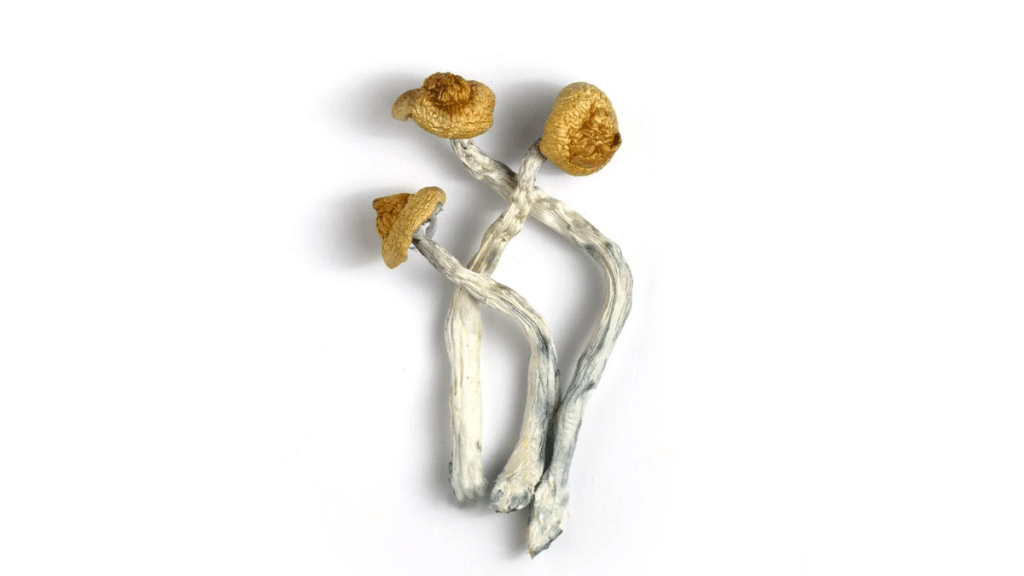Psilocybin, a naturally occurring psychedelic compound found in certain species of mushrooms, has been the subject of increasing scientific interest due to its potential effects on cognition and creativity. Preliminary research suggests that psilocybin may facilitate a temporary alteration of consciousness, potentially enhancing divergent thinking—a style of thought that allows for the generation of multiple solutions to a given problem. This compound ostensibly achieves these effects by acting on serotonin receptors in the brain, which can lead to a state of expanded consciousness and altered sensory perception.
Studies have indicated that psilocybin may also foster creative insights, which are moments of realization that can lead to novel ideas and innovations. While the effects of psilocybin on cognition remain complex and not fully understood, some researchers hypothesize that its impact on the brain’s default mode network—a network involved with self-referential thought and the maintenance of one’s sense of self—may underlie some of its cognitive influences. This disruption can result in a more fluid and interconnected mode of thinking, which may be conducive to creative thought.
As research continues to evolve, psilocybin remains a compound of interest for its potential to shed light on the neurobiological underpinnings of cognition and creativity. Carefully controlled studies are providing a clearer understanding of how psilocybin affects the mind and its potential therapeutic applications. It is important to note that the use of psilocybin is subject to legal restrictions in many countries and should be studied under safe, ethical, and controlled conditions to fully comprehend its effects on human cognition and creative processes.
Overview of Psilocybin
Psilocybin is a naturally occurring psychedelic compound with significant implications for cognition and creativity. Its structure and effects have been studied extensively, resulting in a rich history threaded with cultural significance.
Chemical Properties and Classification
Psilocybin (4-phosphoryloxy-N, N-dimethyltryptamine) is a psychoactive compound found primarily in certain species of mushrooms, commonly known as “magic mushrooms.” It is classified as a tryptamine alkaloid, sharing a chemical skeleton with serotonin, a neurotransmitter important in regulating mood and cognition. In its pure form, psilocybin is a white, crystalline substance. Upon ingestion, the body converts psilocybin into psilocin, its active metabolite, which is responsible for the compound’s psychedelic effects.
Historical Use and Cultural Significance
Psilocybin has been used for millennia in various cultural and religious contexts. Indigenous peoples in Mesoamerica utilized psilocybin mushrooms in spiritual ceremonies, a practice that is thought to date back to at least 1,000 BCE. These mushrooms were termed “teonanácatl,” meaning “flesh of the gods,” underscoring their revered status. The use of psilocybin has continued into the modern era, where it played a pivotal role in the 1960s counterculture movement. Today, psilocybin remains central in certain religious practices and is the subject of renewed scientific interest for its potential therapeutic applications.
Cognitive Effects of Psilocybin
Psilocybin, the active compound found in psychedelic mushrooms, has been shown to influence cognition and creativity in profound ways. Its cognitive effects are primarily observed in two main areas: cognitive flexibility and altered states of consciousness.
Enhancement of Cognitive Flexibility
Studies indicate that psilocybin has the potential to enhance cognitive flexibility, which is the brain’s ability to adapt thinking strategies in response to new and unexpected conditions. Individuals administered with psilocybin may experience:
- Increased ability to think of multiple solutions to a problem
- A decrease in rigid thinking and behavior patterns
This suggests a loosening of their conceptual frameworks, allowing them to form novel connections between ideas.
Altered States of Consciousness
Under the influence of psilocybin, subjects commonly report experiencing significantly altered states of consciousness. These changes are characterized by:
- Intensified sensory experiences and perception alterations, such as vivid imagery and synesthesia
- Shifts in time perception, with moments appearing to expand or contract
These altered states are associated with increased neuronal connectivity, which may contribute to a greater sense of the interconnectedness of ideas and concepts.
Creativity and Psilocybin
Exploring the intersection of psilocybin and creativity leads to a consideration of cognitive flexibility, problem-solving skills, and the ability to connect seemingly unrelated concepts.
Impact on Creative Thinking
Psilocybin, an active compound found in ‘magic mushrooms’, has garnered attention for its potential to alter cognitive processes linked to creativity. Its influence on creative thinking is attributed to its capacity to disrupt normal thought patterns, thereby facilitating novel connections between ideas. Neuroimaging studies have observed that psilocybin tends to decrease activity in the brain’s default mode network (DMN), an area associated with self-referential thoughts and mind-wandering. The reduction in DMN activity correlates with a state of ‘cognitive looseness’, where individuals report increased associative thinking.
- Key Cognitive Changes:
- Enhanced fluency of ideas
- Increased ability to associatively link concepts
- Reduced cognitive rigidity
- Improved divergent thinking capabilities
Studies on Creative Output
Evaluation of psilocybin’s effects on creativity usually centers around subjective measures and objective performance on standardized creativity tasks. Studies employing creativity tests such as the Torrence Test of Creative Thinking have demonstrated that participants under the influence of psilocybin show improvements in originality and elaboration of ideas. While there is evidence in support of psilocybin’s positive influence on creative output, researchers insist on the necessity of controlled environments to accurately measure these effects.
- Documented Effects:
- Originality: Boosts in the uniqueness of ideas generated
- Flexibility: Improves the range and adaptability of thoughts
- Complexity: Enhances the depth and detail in conceptualization
Researchers emphasize that conclusions drawn from these studies should account for the variability in individual responses to psilocybin and the contexts in which creativity is expressed.
